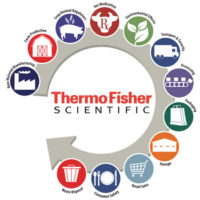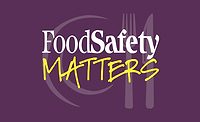Records and Information Management: A Key Ingredient for Efficient Food Business Operations and Audit Preparedness

For food industry companies, the need to proactively manage records and information has taken on new urgency. Studies show that today more than 99 percent of all business documents, records and communications are created in electronic form, and that few of those electronic records are converted into hardcopy. As a result, the amount of information that a typical company generates and stores, and the cost to do so, is staggering—and mounting. Alone, the proliferation of electronic records warrants that your company take stock now of the manner in which it generates, retains, deletes, accounts for and uses its information.
But should your food company have any lingering doubt as to the import of implementing appropriate record and information management protocols, the Food Safety Modernization Act (FSMA) should end any hesitancy. FSMA shifts the food safety paradigm from reacting to food safety problems after they occur to using science-based standards to prevent problems from occurring in the first place and to requiring company-implemented protocols that allow both the U.S. Food and Drug Administration (FDA) and companies to better respond to and contain problems when they do occur. Document and information management is critical to the success of this new model.
For starters, FSMA requires that food companies document each aspect of their operations that might impact food safety. Among other things, a company must prepare and implement a written food safety plan comprising the following components:
• Analysis of known or reasonably foreseeable hazards
• Design and implementation of controls that prevent or minimize the likelihood the identified hazards will occur
• Protocols for monitoring and managing implementation of preventative controls
• Protocols for verifying that preventative controls are up-to-date and effective
• Procedures to correct both production problems and preventative control flaws
• Procedures for recalling adulterated products
• Programs for ensuring that suppliers implement similar food safety controls
Each food safety plan component has its own recordkeeping obligations, including creation and maintenance of records that document training of the people responsible for the food safety plan and related programs. Further, FSMA imposes requirements on the form and content of those records, including that records:
• be the originals, true copies, or electronically stored
• contain the actual values and observations obtained during monitoring and during verification activities
• be accurate, indelible and legible
• be created concurrently with performance of the activity documented
• be as detailed as necessary to provide history of work performed
And, FSMA-required records must be maintained for at least two years.
FSMA also imposes stepped-up government oversight and allows for vigorous government investigations of your food-related business. This includes the authority to demand that your company produce a mountain of information within 24 hours. For the unready or unwary food company, a government investigation—just like a more garden-variety business dispute—can lead to time-consuming and expensive searches for and review of responsive information and, worse, devastating business disruptions and penalties.
Prior to FSMA, FDA had the authority to access records relating to a food product that FDA reasonably believed was adulterated and posed a threat of serious health consequences. FSMA expands FDA’s authority to access records to include information relating to any other article of food at the food facility that FDA reasonably believes is likely to be affected in a similar manner.
FSMA also provides the FDA with a bigger bite should a company fail to comply with a request for documents. Depending on the particular circumstances, the FDA may, among other actions:
• suspend a food facility’s registration and prevent the facility from importing or exporting food or introducing food into commerce
• detain or seize food products
• issue a mandatory recall order
• initiate legal proceedings
In short, the manner in which your company generates and retains information, and the speed with which it can organize, review and produce documents in response to a government request or a food safety situation, can be a recipe for success or disaster.
Document and information protocols often are one of the more difficult challenges food companies face when designing and implementing a food safety program. But given the high-stakes document generation, retention and production issues present, companies should undertake this challenge now. Reactive and ad hoc approaches to records and information management are out. In their stead, proactive document and information management policies, practices and systems that 1) comply with the FSMA and other regulatory obligations, 2) meet other business needs, 3) satisfy the needs of supply partners, 4) allow for efficient and effective compliance with requests for information and 5) allow a company to make important business decision and understand obligations based on carefully organized and maintained information are one of the key ingredients in the recipe for success under FSMA.
John T. Shapiro, Esq., is a partner and member of the Food Industry Team at Freeborn & Peters LLP (Chicago).
Looking for a reprint of this article?
From high-res PDFs to custom plaques, order your copy today!








.webp?t=1721343192)